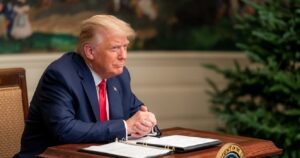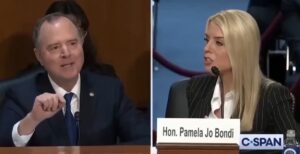Xi Jinping Declines Invitation To Trump's Inauguration
Chinese President Xi Jinping will not attend President-elect Donald Trump's inauguration, despite receiving a direct invitation.
This decision comes amidst ongoing economic tensions and tariff threats from the United States toward China, according to the New York Post.
President-elect Trump extended an invitation to President Xi in an unprecedented move, as historically no world leader has attended a U.S. president's inauguration. This was part of Trump’s broader approach to reshape diplomatic norms and assert U.S. strength globally.
Details On The Diplomatic Decision
Xi's decision to decline the invitation was communicated through diplomatic channels, with CBS News reporting the development based on information from a source familiar with the matter. This decision is in line with traditional diplomatic practices where such events are attended by national ambassadors or their equivalents.
In place of Xi Jinping, the Chinese Ambassador to the U.S. and his wife will attend the inauguration, maintaining the customary diplomatic representation at significant American political events.
Trump's Hardline Stance On China
Throughout his campaign and after his election, Donald Trump has consistently emphasized his tough stance toward China, threatening increased tariffs and demanding adherence to previously negotiated trade deals. “My first call — I’m going to call up President Xi. I’m going to say, ‘you have to honor the deal you made,’” Trump declared, referring to a $50 billion trade agreement involving agricultural products.
Moreover, Trump has accused BRICS countries, including China, of attempting to destabilize the dominance of the U.S. dollar, a situation he vowed not to allow to continue unchallenged.
Reaction From Trump’s Administration
Trump's invitation to Xi and the subsequent decline have not gone without comment from the incoming White House team. Incoming press secretary Karoline Leavitt reiterated the administration's intent to foster open dialogues with both allies and adversaries. “This is an example of President Trump creating an open dialogue with leaders of countries that are not just our allies but our adversaries and our competitors, too,” Leavitt expressed.
Leavitt further defended Trump's diplomatic strategies by citing his previous term: “We saw this in his first term. He got a lot of criticism for it, but it led to peace around this world.”
Global Implications Of The Inauguration Attendance
The absence of the Chinese President at Trump's inauguration is significant, reflecting not only the current state of U.S.-China relations but also the potential for future diplomatic engagements. As the inauguration approaches, the world watches to see how these dynamics will unfold, particularly how Trump will navigate the complex web of international politics during his upcoming term.
While the Chinese ambassador's presence keeps with tradition, the absence of Xi underscores the challenges and intricacies of global diplomacy that the new American administration will face.




